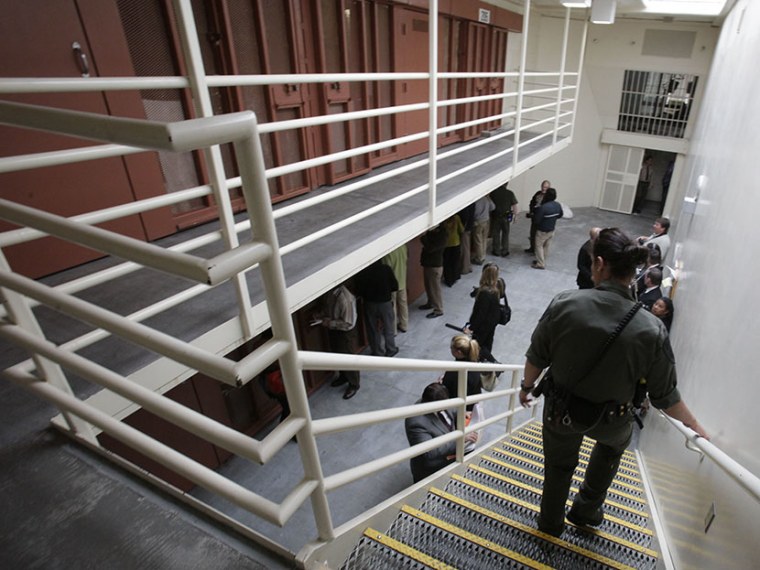Inmates at prisons across California are in their fifth day of a hunger strike to protest the practice of long-term solitary confinement in the state’s prisons. Nearly 30,000 inmates took part in the strike initially, and as of Thursday, more 12,000 were still refusing food, corrections officials said.
Supporters of the hunger strikers are planning a massive rally Saturday afternoon at Corcoran State Prison in central California in solidarity with the inmates who are currently demanding improved conditions in the state's prisons and an end to long term solitary confinement.
The United Nations has called for an end to prolonged solitary confinement under all circumstances; the special rapporteur on torture has repeatedly pointed to studies that show even a few days of total segregation can lead to long-lasting mental damage. Some prisoners in the California prison system have been held in isolation for decades.
Medical officials told a California public radio station that it prisoners will be force-fed if a court order is issued, although one has not yet been issued. The California Department of Corrections and Rehabilitation has also said it will isolate prisoners who are on hunger strike and remove any food found in hunger strikers' cells as a way to maintain order and stop the strike from spreading.
Supporters of the strikers say that such actions will not deter the prisoners. "CDCR responding to the hunger strike by increasing torturous conditions and treatment is not going to end the hunger strike," a spokeswoman for the Prisoner Hunger Strike Solidarity coalition told msnbc.
The current multi-prison hunger strike follows one by inmates at the Pelican Bay State Prison in 2011 that grew to include some 6,600 prisoners across the state and continued for weeks. More than 1,000 of the 3,500 inmates at Pelican Bay are being held in solitary confinement, which means they are kept in windowless cells for more than 22 hours a day and get only 90 minutes of exercise, which they also spend alone.
Officials responded to the 2011 strike by promising to change its policies on both placing inmates into solitary confinement and allowing them back into the general population, but only a small fraction of those held have been released from isolation.
The state of California holds approximately 11,000 men and women in solitary on any particular day, and the majority of those are held there because prison officials have deemed them to have gang connections. According to a 2012 Mother Jones investigation, prisoners can be placed in solitary confinement for just for having the wrong book, newspaper, or even holiday card.
